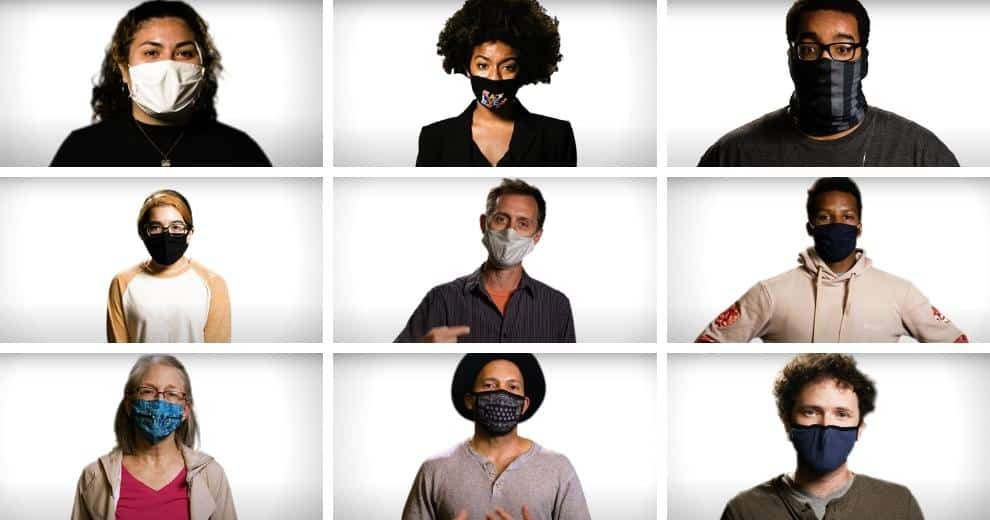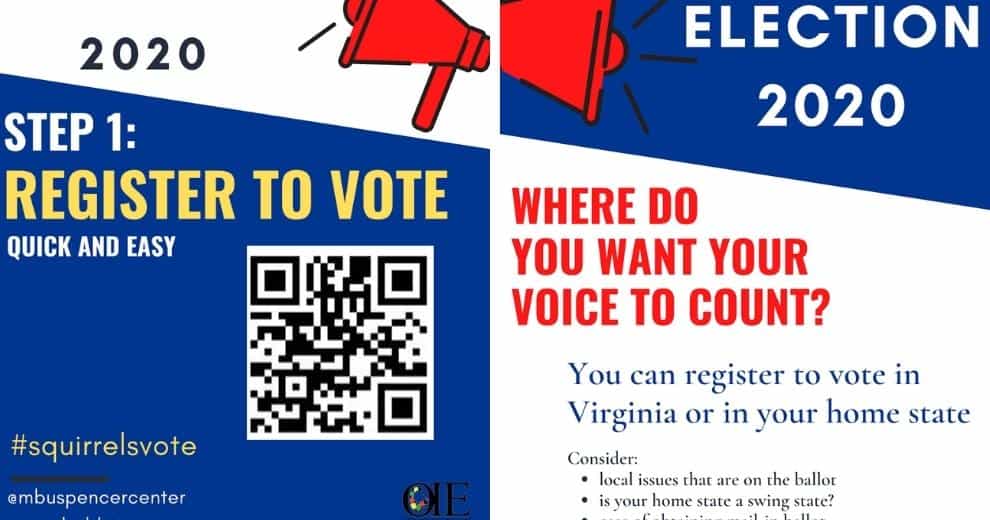Students from MBU’s Spencer Center for Civic and Global Engagement and Political Science Department have spent the past four years sharing one message with classmates: Get out the vote!

And their efforts have yielded results. The latest National Study of Learning, Voting, and Engagement (NSLVE) compiled by the Institute for Democracy and Higher Education at Tufts University tracked a significant uptick in participation among eligible MBU students for the 2020 election.
MBU’s student voting rate increased from 60.5% to 67.5%, amounting to an additional 360 cast ballots compared to the last presidential election in 2016.
This 7.5% increase boosted MBU above national student participation averages of 66% — and well above minimums around 20%.
What’s more, Spencer Center director Christina Harrison says the effort to rally voter turnout at MBU was student-led and nonpartisan.
“They kept the focus on being positive, educational, and inclusive,” said Harrison. “We know that many students are confused about where to register and vote while they are away at college, so our efforts centered on providing information about the process: locations and deadlines to register and vote, as well as nonpartisan information about key election issues.”
Collaboration between the Spencer Center and the Political Science department amplified voter engagement efforts. Political science professor Laura van Assendelft embedded opportunities for students in her United States politics classes to get actively involved in voter participation and education. Students from Van Assendelft’s classes helped staff the Spencer Center’s Voter Registration Day tables, and organized other election events.
Faced with pandemic-related restrictions on gatherings in early fall 2020, political science students put a creative spin on the large in-person events of past years by launching a customized website, MBU Election Central. Their goal? An informative and engaging central location for objective campaign information, historical background, moderation, and analysis.

Flyers from the 2020 voter registration drive at MBU.
Calls to action around voter registration and information about early voting options were communicated steadily across the university. A powerful public service announcement featured students, faculty, and staff reflecting on the importance of exercising their right to vote. Socially distanced “watch” parties for presidential and vice presidential debates drummed up additional enthusiasm. A campus-wide event was also held on National Voter Registration Day each year with tables of voting information, website resources, and students ready to answer questions.
NSLVE data shows the efforts helped encourage previously hesitant students: The number of registered student voters at MBU climbed by about 4% compared to 2016. And participation among 18-21-year-olds skyrocketed by 16%.
“That participation is crucial, because we know that the earlier people engage in the political process, the more likely they will be to continue voting and participating in civic causes throughout their lives,” said Harrison. It’s the keystone of a healthy, representative democracy.
NSLVE researchers agree, adding the increase was part of a larger national trend, which saw college students — many of them first-time voters — casting ballots at a rate nearly commensurate with the general public.
In a related report, Director of the Institute for Democracy and Higher Education Nancy Thomas called that fact “nothing short of stunning.”